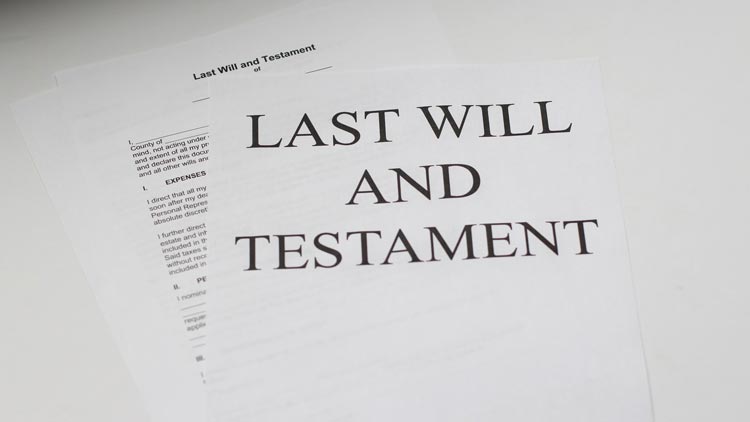The Problems with Do-It-Yourself or Online Will
With the advent of the internet, many look online to answer their common questions. It’s no surprise that people start their search for legal advice on the web. That means that critical tasks like preparing an estate plan or drafting a will are being attempted without the help of a qualified estate planning attorney.
While using an online template or creating your will might seem like a cost-effective and straightforward way to prepare a crucial document, it can also put you at risk.
Before you decide to try your hand at writing your will as a DIY project, here are some things to consider.
What is a Will?
Simply put, a will is a legal document that directs your wishes regarding your assets. You can decide who gets different parts of your estate, including who helps take care of your children. A will is the only way to ensure that your wishes are followed.
Who Needs a Will?
While there may be some debate about who actually needs a will, it is always better to have one than to go without.
If you are married, your spouse is legally tied to you. Your spouse would likely inherit all of your assets upon your death. If there are parts of your estate you
want to pass on to someone else, like a sibling or close friend, a will is the best way to ensure this happens.
If you have children, you want to designate who will become their legal guardians if you and your spouse are both gone.
Even if you’re single, you may still need a will, especially if you have a positive net worth.
California Requirements for a Will
One of the reasons that creating a will can be challenging is that each state has different laws and rules about how it will work. In California, there are several requirements for a will be to legal and valid:
- The author of the will must be a legal adult that is at least 18 years old.
- If handwritten, the “holographic” will must be dated and signed by the author.
- If the will is typed, it must be signed by the author and by two non-benefiting witnesses.
While this might seem like wills are extremely easy to create, the challenge is in how they are prepared. What’s said in the will can make or break if your wishes are actually followed the way you want them to be.
What Can Go Wrong?
The biggest challenge with an online or DIY will is that it’s far too easy to use the wrong language in it. Even simple mistakes, like using the wrong word, can drastically change the meaning of the will. It’s also likely that someone who does his or her own will may not think about all of the elements necessary to have a proper plan.
Most of these critical mistakes aren’t noticed until the author has already passed away, and it’s too late.
Here are some of the most significant risks associated with an improper will.
Improper witnessing
California law has strict regulations regarding witnesses. If you type your will and don’t have the signature of two witnesses, the entire thing is invalid.
You also have to be careful that your witnesses do not benefit from your will in any way. A close friend relative may not be named directly in the document, but he or she might benefit indirectly. Even the smallest hint of an improper witness can result in expensive legal battles.
If you decide to simply handwrite your will, you can avoid needing witnesses. Still, you also risk battles if your handwriting proves difficult to decipher. Even with our best attempts, there is no guarantee that others will be able to read what we’ve put down on paper.
Leaving assets to someone who received government benefits
Someone who receives government benefits may find inheriting significant assets unexpectedly unhelpful.
For example, you might leave your house to a relative who receives federal or state assistance, like health care or food assistance. However, now that they own your home, the programs from which they rely on might deem your relative ineligible for assistance.
A kind gesture that is meant to help may end up putting someone you love in a precarious situation.
Making the wrong arrangements for your children
It’s easy to imagine the most straightforward situation for your will. Most people believe that they’ll die before their children, so they leave the estate to their offspring. Yet in the sad case that a child dies first or at the same time as the parents, there may not be another beneficiary on the will. That means a probate court will have to decide how to split up your estate.
If you have minor children, your will designates who takes over as their legal guardians. Forgetting this provision would mean the courts would decide where your children go. While we want to believe that the court will make a best-interest decision for the children, the courts don’t know your family dynamic and must follow strict laws.
You could also make the mistake of naming a couple as your children’s guardians. While this might seem like a good plan, if that couple one day decides to split up, your children could be caught in an unwanted custody battle.
Forgetting a key piece of information
It’s also easy to forget naming an executor to your will. Since this is not a required step in California, you might leave it out. The executor is the person who makes sure your wishes are followed.
Not only is it wise to have an executor, but it’s best to have the right person on the job. It might seem logical to name a friend or relative, but this choice should take careful deliberation. You should pick someone who can handle this task responsibly and objectively.
Don’t Risk Your Estate, Your Children, or Your Financial Legacy
Even though a DIY or online will might seem like a simple path for your estate plan, it rarely provides the best outcomes. A Los Angeles estate planning attorney not only knows the proper way to execute a will but can help you think about your final wishes. Estate planning is complicated, so you don’t want to leave it in the hands of some cookie-cutter form online. Meet with an estate planning attorney today and learn how to make the most of your will.











